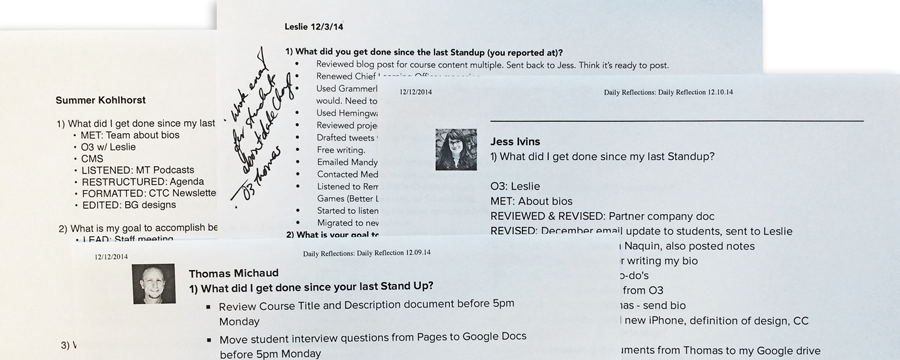
We’re thrilled to announce that MailChimp is joining us as a Center Centre Partner Company!
MailChimp is a fantastic company with one of the world’s most talented user experience (UX) teams. Our students will improve their skills under the MailChimp team’s mentorship. It’s a perfect match.
We love that MailChimp’s Atlanta offices are only a two-hour drive away from Center Centre in Chattanooga. We expect we’ll see the MailChimp team frequently at the school. They’ll enhance their own skills as they participate in the students’ classes. They’ll share their expertise with frequent reviews of the students’ ongoing project work.
It will be easy for our students to make the journey to MailChimp’s HQ. Our students will see how MailChimp’s work environment supports a productive and creative culture. Students will observe the UX team at work, seeing the wide variety of activities that go into shipping a top-quality product. All this direct exposure with working professionals will show our students what lies ahead in their careers.
MailChimp has supported Center Centre from the very beginning. Aarron Walter, who is MailChimp’s Director of User Experience, built their UX team. Aarron told us:
Center Centre is addressing a significant challenge in the web industry: Today’s students are graduating without the training or skills needed to succeed in design and technology. Center Centre’s curriculum takes a fresh approach. It’s grounded in real-world concepts, and it gives students the opportunity to work with industry professionals before their career begins.
We’re excited to contribute to the learning experience at Center Centre because it’s a program we believe in. We’re looking forward to working with students in the Center Centre classroom and in our offices in Atlanta. There’s no better way to learn than by doing!
MailChimp’s culture embraces UX design
More than 7 million people use MailChimp to create, send, and track email newsletters. You’ve likely received emails sent with MailChimp. Or maybe you’ve sent emails through MailChimp yourself.
MailChimp’s UX team makes their product easy to learn and simple to use. They’ve produced an industry-leading online service with a delightful user experience.
The UX team’s culture is about sharing, and it shows. Aarron Walter wrote Designing for Emotion, a book on how to bring delight into every design project. Kate Kiefer Lee, who is in charge of MailChimp’s content and communication efforts, co-wrote Nicely Said with Nicole Fenton—a book we love. I used Jason Beaird’s book, The Principles of Beautiful Web Design, when I was a university professor. We’re big fans of MailChimp’s The UX Newsletter and The UX Reader, two inspiring resources they share with the entire UX community.
As MailChimp’s Chief Culture Officer (yes! Culture is so important, they gave it a C-level position), Marti Wolf told us:
At MailChimp, we believe in empowering people through education and professional development opportunities, and we’re so excited to support an organization that gives students hands-on experience working in user experience design. We look forward to sharing our knowledge with students at Center Centre, and know we’ll learn a lot in the process, too.
We’re so excited to have MailChimp join our Partner Company Program. Working with a company who understands the value of UX is an excellent way to prepare our students to join the workforce as industry-ready, junior UX designers.
Become a Center Centre Partner Company
Our partnership with MailChimp brings us closer to starting the first cohort of Center Centre students. Would you like your organization to become a Center Centre Partner Company? Learn more about the Center Centre Partner Company program and get in touch with us.
Become a Center Centre student
We’re looking for students that are tenacious learners, passionate about helping others, and curious about technology. We don’t require prior design or development experience. Learn more about our program and apply now to be a student.



